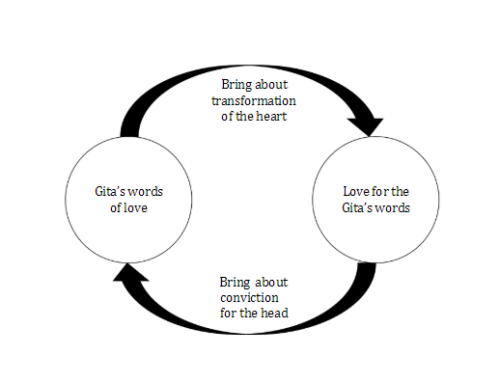Few things live as close to us as our thoughts; few things influence us as immediately as our thoughts; few things define us as much as our thoughts.
Yet we rarely examine the quality of our thoughts; we hardlyendeavor to improve them; we scarcely recognize that they even need improvement.
Our thoughts usually dwell on enjoyable worldly objects. However, all our encounters with various worldly objects unavoidablymeet one of these three fates:
1. Not attainable (e.g. the highest paying job in town)or
2. Attainable butnot enjoyable (e.g. the job necessitates working with a tyrannical boss), or
3. Enjoyable but not retainable (e.g. the job ends with retrenchment or retirement).
Whenour thoughts are monopolized by worldly objects, we feel restless, cheerless, helpless – in one word, impoverished.
That’s why Gita wisdom cautions us against letting worldly objects dominate our thoughts. It recommends that we give worldly responsibilities the necessary thought and time. At the same time, it insistently and persistently urges us to stop evading theonly responsibility that can make our thoughts enriching: our spiritual responsibility. This responsibility of practicing devotional service enables us to connect with Krishna, who is the reservoir of unending inner enrichment. When our devotion becomes steady and strong, our Krishna-connection correspondingly becomes attainable, enjoyable and retainable – eternally. Then thinking about Krishna becomes increasingly habitual, natural and relishable; soon, our thoughts start enriching us constantly, as happened to Sanjay at the end of the Gita (18.76).
This inner enrichment not only makes us happy in the present but also offers as a side benefit an enhanced ability to shoulder worldly responsibilities maturely and as the main benefit an accelerated journey to the eternal abode of Krishna.
Bhagavad Gita Chapter 18 Text 76
“O King, as I repeatedly recall this wondrous and holy dialogue between Krishna and Arjuna, I take pleasure, being thrilled at every moment.”


Leave A Comment